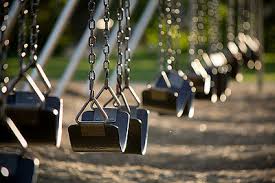
A New Jersey Appeals Court ruled that public schools are not meant to be held accountable under the Child Sexual Abuse Act (CSAA). An earlier New Jersey Supreme Court case, called Hardwicke v. American Boychoir School, said that private boarding schools could be held liable under the CSAA because it says that “a…person standing in loco parentis (standing in for a parent) … who knowingly permits or acquiesces in sexual abuse by any other person also commits sexual abuse…” But the appeals court said there was no evidence that the New Jersey Legislature intended for that provision to apply to public day schools.
In 2014, a woman, identified as J.P., filed a lawsuit against Gregory Smith, the assistant marching band director, as well as Southern Regional High School and others, because of events that first started in 2000 when she was a high school junior at Southern Regional High School in Manahawkin, NJ. She was a member of the marching band color guard and the daughter of its band director. Since the band director liked Smith, he would allow him to stay at their house on the weekends. While staying in her home and while the marching band traveled out of state for competitions, Smith raped J.P. numerous times. Only after she fainted during a drum performance due to her becoming pregnant from Smith did it finally become known, because J.P. confessed to her mother that Smith was the father. She later had an abortion. Although J.P.’s father met with Smith to encourage him to quit his job at the school, her father believed Smith when he said he had nothing to do with the pregnancy. Thus, no police report was ever filed.
In 2014, Smith was charged, pleaded guilty later that year to criminal sexual contact with a 16- or 17-year-old, and sentenced to 157 days in jail and two years of probation. But the lower court judge in the Ocean County Superior Court dismissed the charges against the school, because it was not considered a person “within the household” to fall under CSAA liability. On appeal, J.P. argued that the CSAA should apply in this case because her father held marching band meetings at their home, Smith sometimes stayed as a guest and because of the fact that some of the abuse occurred in her home while other instances occurred on school trips.
But the Appellate Division was not persuaded because the Hardwicke case involved a private boarding school that actively undertook a degree of parental substitution for students who lived there full-time, which would then turn the school into a residence allowing “within the household” to apply for liability under the CSAA. It’s clear from the court’s decision that public schools are not included under the CSAA.
This is a narrow ruling. It does not prevent parents from suing public schools on other grounds if a teacher, coach or other adult is sexually inappropriate with a child. The Legislature should change the law to make it apply to public schools, but in the meantime our kids are not without protection. Kieu-Nhi Le, Rutgers School of Law Newark candidate for a JD degree in May 2016. She is the Managing Business Editor of the Rutgers Computer and Technology Law Journal collaborated with me on this blog.

